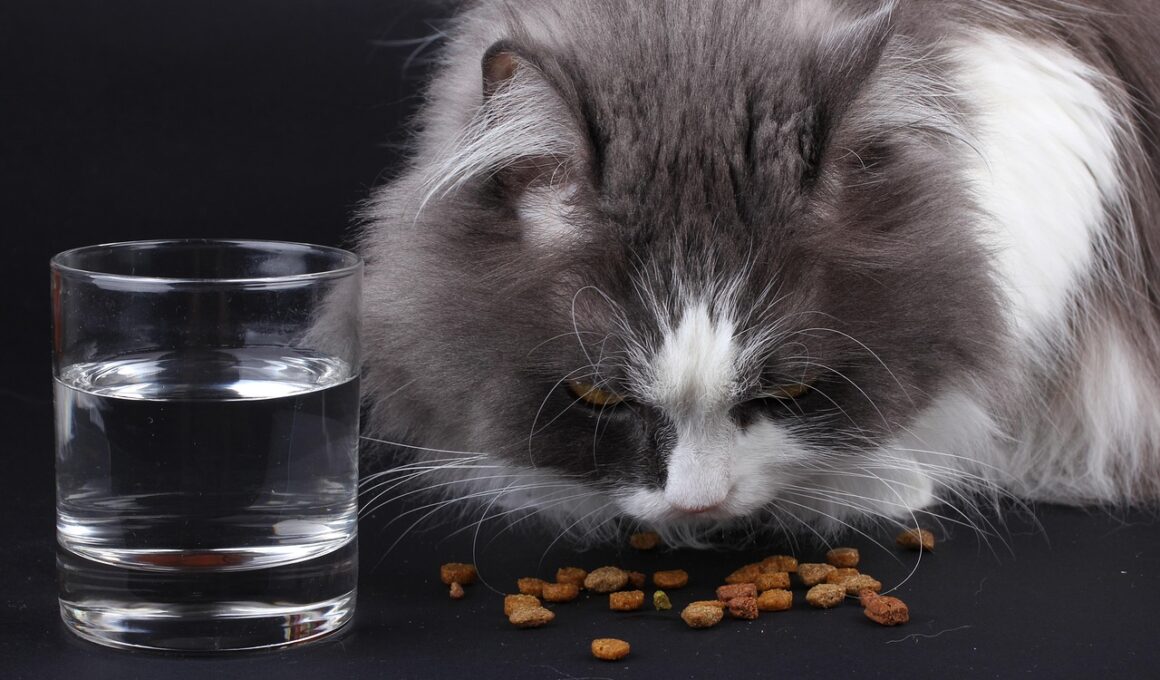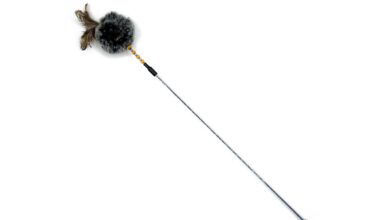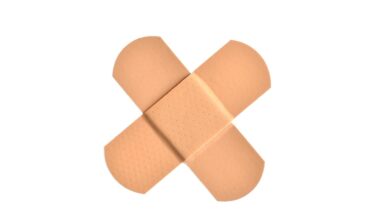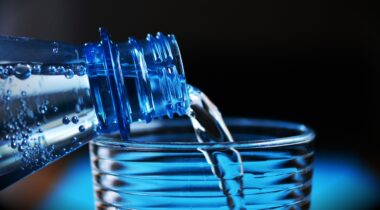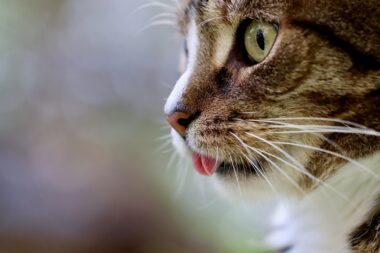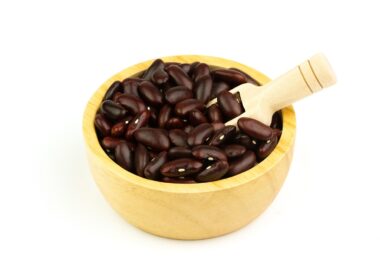How to Monitor Your Cat’s Nutritional Health with Kidney Problems
Monitoring your cat’s nutritional health is critical, especially when they have kidney problems. The kidneys play a vital role in filtering waste from the blood and regulating various bodily functions. A properly balanced diet can help manage these conditions. It’s essential to consult with your veterinarian about specific nutritional needs regarding protein, phosphorus, and hydration. Protein is crucial but should be limited to minimize kidney strain. Restricted phosphorus levels are also vital as they can help slow the progression of kidney disease. Additionally, always provide fresh water to ensure your cat stays hydrated and can help flush out toxins from the body. Remember, each cat is unique, requiring a tailored approach to their diet according to their specific health needs and kidney condition. It’s beneficial to maintain a food diary, noting meals and reactions, which can assist your vet in adjusting the diet effectively. Always incorporate wet food into their diet; it offers necessary moisture, critical for kidney function. By closely monitoring diet and hydration, you can significantly improve your cat’s quality of life and manage their kidney health better.
Understanding the signs of kidney issues in cats is essential for timely intervention. Excessive thirst and urination might indicate a problem, needing closer observation. Other signs include weight loss, vomiting, or decreased appetite, which could signal advanced disease. Early detection through routine veterinary check-ups is advised; your vet may recommend blood tests or urinalysis to understand kidney function better. Nutrition plays a central part in managing kidney disease as it can either help or hinder your cat’s health. Be attentive to any changes in behavior or activity levels, which may reflect overall health status as well. While managing your cat’s dietary needs, it’s crucial to remain adaptable, ensuring you are ready to modify meals based on their changing condition. You may also consider supplements recommended by your vet, which can help support kidney function and health. Getting quality food specifically formulated for kidney health can make a difference, improving their overall quality of life significantly. Seeking out this type of food can be crucial, prioritizing those with lower protein but high-quality ingredients, thus optimizing nutritional value while minimizing strain.
When selecting the right food for a cat with kidney issues, it is vital to pay attention to ingredient quality. Look for pet foods designed to support renal health, often labeled as such. These options typically have reduced protein and phosphorus levels, assisting in managing the progression of kidney disease effectively. You might want to consult with your veterinarian on the best brands available. Switching to a recommended diet should happen gradually to avoid digestive upset. Begin with a mixture of their current food and the new food over several days to ease the transition and monitor how your cat reacts to the change. Consider combining wet and dry food for optimal hydration and texture variety. Research on the importance of sodium restriction is also crucial, as recommended levels help avoid excessive thirst and urination, benefiting your cat’s overall wellness. Additionally, maintaining regular meal schedules can help establish a routine that makes feeding times predictable for your cat. Monitoring their weight and body condition is essential to gauge how well they are tolerating dietary changes without weight loss or overeating.
Hydration Strategies for Cats with Kidney Issues
Hydration is paramount for cats with kidney disease. They often struggle to maintain proper hydration due to decreased thirst drive and must be encouraged to drink more. Elevating water intake is vital because it helps dilute toxins in the urine and supports overall kidney function. One effective strategy to boost hydration is through wet food, which contains higher moisture content than dry kibble. This approach will not only enhance daily water intake but also improve nutrient absorption. Additionally, placing multiple water bowls throughout the house encourages your cat to drink more. Using a cat water fountain can also entice them to drink due to the circulating water that is often more appealing than stagnant water. It’s crucial to monitor your cat’s daily water intake, ensuring that they drink sufficient amounts regularly. If your cat resists drinking, consider offering low-sodium broths or flavored water. Always ensure access to fresh, clean water daily. These strategies can significantly improve hydration levels, which is crucial in managing kidney issues and enhancing your cat’s overall health.
Incorporating nutritional supplements can be beneficial for cats with kidney problems. Omega-3 fatty acids, for example, are well-recognized for supporting kidney health and can reduce inflammation. Always consult your veterinarian before adding any supplements to ensure safety and appropriateness based on your cat’s specific condition. Other possible supplements include antioxidants that support overall cell health. While dietary modifications might be crucial, remember that portion control and meal timing also matter. Smaller, more frequent meals can be easier on their kidneys than fewer, larger meals. Regularly observing your cat’s eating habits and ensuring that they eat well can help gauge their health status related to their kidney function. If they show signs of declining interest in food, this could indicate further health issues, requiring veterinary advice. Regular blood work to monitor kidney values is also essential for adjusting dietary strategies over time appropriately. A proactive approach to nutrition and health management can lead to a better quality of life, so remain vigilant and adaptable to your cat’s changing needs.
Creating a Comfortable Eating Environment
Creating a comfortable eating environment for your cat is crucial in supporting their nutritional health, especially with kidney problems. A peaceful and quiet feeding space can help encourage your cat to eat better. Minimizing distractions ensures they can focus on their meals, especially cats with a reduced appetite. Position their food and water bowls in a consistent, stress-free area, away from noise or other pets that may create anxiety during feeding times. Alongside providing a comfortable environment, ensure the bowls are clean, as cats are sensitive to cleanliness. Using shallow bowls can help prevent whisker fatigue, promoting a more enjoyable eating experience. Consider trying different food textures, such as pate or chunky wet food, to entice your cat and encourage them to eat. Regularly changing the flavor of their food can also stimulate interest during mealtime. Ultimately, your cat’s emotional and physical environment plays a significant role in their willingness to eat. Monitor their preferences and conditions regularly, and make appropriate adjustments to their space, providing the most supportive atmosphere possible.
Finally, consider keeping an open line of communication with your veterinarian about your cat’s nutritional health regularly. Schedule routine check-ups to monitor kidney function, and bring along any questions about dietary changes. Your vet is a valuable resource for dietary recommendations tailored to your cat’s unique needs. Discuss any observations regarding your cat’s eating habits, weight changes, or unusual behaviors to help your vet assess their condition. Nutritional health is an ongoing process, requiring adjustments based on how your cat responds to dietary changes over time. Attention to signs of worsening health can lead to prompt action, which is paramount in managing kidney problems. Moreover, sharing your experience with other cat owners can provide additional insights into managing similar kidney issues and dietary strategies. Online communities and forums can offer helpful support and advice, creating a network of shared knowledge. Thanking your pet for their companionship throughout this journey enhances engagement while nurturing a positive bond during their nutritional care and overall health management. Caring for a cat with kidney problems can be challenging, but with the right approach, your feline can thrive.
{ “text”: “What to search for this exercise is appealing \”Cat Nutrition\” pictures related to feeding cats in need. It may share healthy treats and proper feeding intervals! You can also use photos showing hydration strategies, and muscle support that contributes to feline wellbeing.” }
